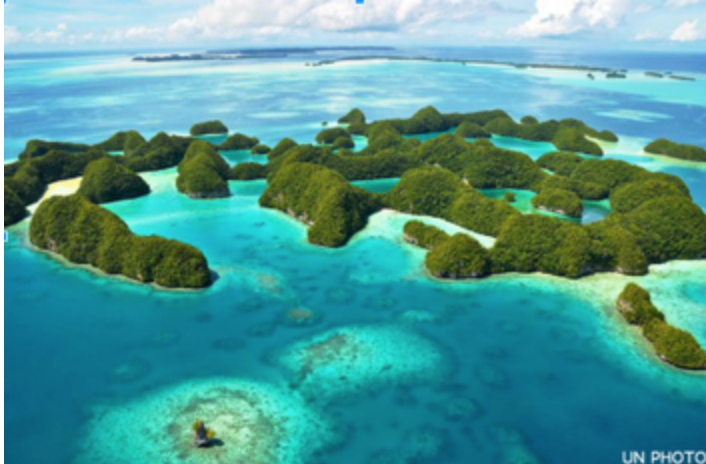Small Islands, Big Challenges: Roadblocks in the Path to a Sustainable Future
- Nonviolence NY
- Jun 25, 2017
- 4 min read
By Laurel Wong
What are SIDS?
Small Island Developing States have been recognized as facing special challenges in sustainable development since the 1992 UN Conference on Environment and Development. These are small countries who, because of their status as a developing nation and as an island, face specific challenges in achieving the Sustainable Development Goals. Some of these nations include Barbados, Singapore, Fiji, and more.
What challenges do they face?
Small Island Developing States face unique challenges in their efforts toward sustainable development due to their geographic isolation, limited economic revenue and natural resources, smaller size, and heightened vulnerability to effects of climate change. These challenges create major roadblocks for developing island nations’ efforts toward sustainable development.
Dangers of Climate Change:
While climate change is a significant issue for every nation on the planet, SIDS are in a unique position. Climate change leaves their fragile natural environments at risk for major harm, causing sea level to rise and increasing the severity and frequency of natural disasters. Rising sea-levels threatens their environment, socio-economic stability and displaces a great portion of their population, largely affecting impoverished people. The damage that natural disasters cause are devastating to SIDS, and disrupt any progress made in infrastructure, finance, or the quality of life of its population. Additionally, rebuilding after a natural disaster takes much more time and comes at a higher cost for SIDS. A fitting example would be the nation of Haiti, whose natural resources and sources of economic stability, like fishing and agriculture, are coastally concentrated and constantly interrupted by natural disaster and rising sea levels. The impoverished portion of the population of these nations have the smallest effect on climate change, but dramatically feel its consequences. Their sources of income often rely on the stability of the ocean environment, effects of climate change can cause displacement, and therefore, extreme poverty, interrupted education, unstable living conditions, and poor health care. This quickly becomes a macroeconomic issue which inhibits economic growth, increases unemployment, and prevents the nation from focusing on sustainable development.
Slow Economic Resilience:
Fluctuations in global economics, like the recent economic crisis, have a heavy impact on SIDS due to their smaller size and fragile economies, especially nations whose economies are largely based on tourism, coastal marine industry, traffic and investments of larger nations. Small Island Developing States take more time to recover from such economic downfalls as they are often dependent on a few, external and remote markets.
Limited Natural Resources:
As expected, sustainable development in SIDS is largely dependent on their marine resources. It is understood that a healthy and productive environment and access to fresh water are at the heart of progress for these states. This combination of little economic diversity and limited natural resources causes many SIDS to be dependent on importing many basic resources, such as petroleum and biomass fuels, driving up energy costs.
Small Size and Geographic Isolation:
SIDS are often distant and isolated from other nations, as a result communication and transportation costs are relatively high. High transportation costs and challenging routes for long distances often discourages trade and transportation of medical supplies, construction materials, and technology. Their smaller size also enlarges issues such as safely disposing of waste without contaminating their limited freshwater sources.
So what’s being done about it?
Each one of the challenges that are faced by SIDS are deeply connected to each other. Since the recognition of their special challenges as SIDS, these countries have been collaborating with the world community towards sustainable means of tackling these challenges. A brief timeline of milestones in SIDS pursuing SDGs is available here. Participating in global efforts to combat climate change, shifting away from dependence on nonrenewable energy sources, investing in their human capital, and advancing natural disaster preparation developments are just some of the ways that SIDS are working towards a sustainable future.
This week, the Ocean Conference at the United Nations provided a platform for shared knowledge and cooperation to discuss implementation of the sustainable development goals. At a UN Ocean Conference Side Event Meeting on Small Island Developing States, co-sponsored by the NGO Committee on Sustainable Development-NY, various leaders in business development, aid technology, environmental education, and climate policy, along with the UN ambassadors from the Republic of Vanuatu and Trinidad & Tobago, discussed the progress and initiatives that can aid SIDS in sustainable development.
Challenges that are faced by all nations are much more intense for Small Island Developing States. The global community can support these nations by sharing ideas and investing in sustainable development projects and technology that will reduce the burden of SIDS’ challenges, and reduce greenhouse gas emissions worldwide.
These issues may seem foreign, but they are not as far fetched as we think: New Yorkers could see up to 6 feet of sea level rise in addition to the increasing average temperatures and extreme precipitation. The consequences of climate change is not only felt in our “sinking” coastal regions, but also in the rising temperatures across the country. This information is especially important in light of Donald Trump’s recent decision to pull out of the Paris climate accord. You can still be a part of the movement: encourage your community and your leaders to join the world in combating climate change, for SIDS and for our country.






